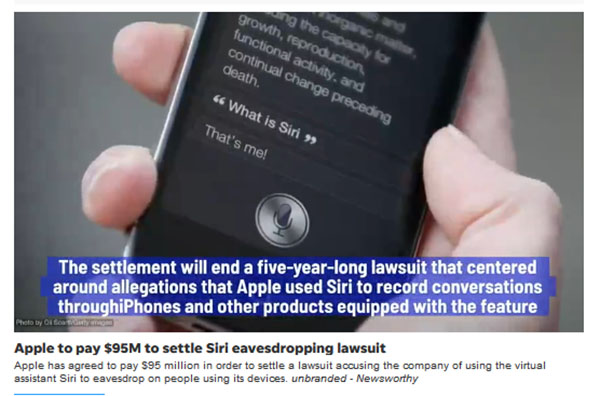Guide to uncensored, unbiased, anonymous AI in 2025
2025.01.09 12:37
|
|
In early 2024, Google’s AI tool, Gemini, caused controversy by generating pictures of racially diverse Nazis and other historical discrepancies. For many, the moment was a signal that AI was not going to be the ideologically neutral tool they’d hoped.

 Gemini’s safety team made Nazi Germany more inclusive. (X)
Gemini’s safety team made Nazi Germany more inclusive. (X)
Introduced to fix the very real problem of biased AI generating too many pictures of attractive white people — which are over-represented in training data — the over-correction highlighted how Google’s “trust and safety” team is pulling strings behind the scenes.
And while the guardrails have become a little less obvious since, Gemini and its major competitors ChatGPT and Claude still censor, filter and curate information along ideological lines.
Political bias in AI: What research reveals about large language models
A peer-reviewed study of 24 top large language models published in PLOS One in July 2024 found almost all of them are biased toward the left on most political orientation tests.
Interestingly, the base models were found to be politically neutral, and the bias only becomes apparent after the models have been through supervised fine-tuning.
This finding was backed up by a UK study in October of 28,000 AI responses that found “more than 80% of policy recommendations generated by LLMs for the EU and UK were coded as left of centre.”

 AI models are big supporters of left-wing policies in the EU. (davidrozado.substack.com)
AI models are big supporters of left-wing policies in the EU. (davidrozado.substack.com)
Response bias has the potential to affect voting tendencies. A pre-print study published in October (but conducted while Biden was still the nominee) by researchers from Berkley and the University of Chicago found that after registered voters interacted with Claude, Llama or ChatGPT about various political policies, there was a 3.9% shift in voting preferences toward Democrat nominees — even though the models had not been asked to persuade users.
Also read: Google to fix diversity-borked Gemini AI, ChatGPT goes insane — AI Eye
The models tended to give answers that were more favorable to Democrat policies and more negative to Republican policies. Now, arguably that could simply be because the AIs all independently determined the Democrat policies were objectively better. But they also might just be biased, with 16 out of 18 LLMs voting 100 out of 100 times for Biden when offered the choice.
The point of all this is not to complain about left-wing bias; it’s simply to note that AIs can and do exhibit political bias (though they can be trained to be neutral).
Read also
Features
Get Bitcoin or die tryin’: Why hip hop stars love crypto
Features
How the digital yuan could change the world… for better or worse
Cypherpunks fight “monopoly control over mind”
As the experience of Elon Musk buying Twitter shows, the political orientation of centralized platforms can flip on a dime. That means both the left and the right — perhaps even democracy itself — are at risk from biased AI models controlled by a handful of powerful corporations.
Otago Polytechnic associate professor David Rozado, who conducted the PLOS One study, said he found it “relatively straightforward” to train a custom GPT to instead produce right wing outputs. He called it RightWing GPT. Rozado also created a centrist model called Depolarizing GPT.

 Researchers were easily able to fine-tune models to align with different political ideologies. (PLOS One)
Researchers were easily able to fine-tune models to align with different political ideologies. (PLOS One)
So, while mainstream AI might be weighted toward critical social justice today, in the future, it could serve up ethno-nationalist ideology — or something even worse.
Back in the 1990s, the cypherpunks saw the looming threat of a surveillance state brought about by the internet and decided they needed uncensorable digital money because there’s no ability to resist and protest without it.
Bitcoin OG and ShapeShift CEO Erik Voorhees — who’s a big proponent of cypherpunk ideals — foresees a similar potential threat from AI and launched Venice.ai in May 2024 to combat it, writing:
“If monopoly control over god or language or money should be granted to no one, then at the dawn of powerful machine intelligence, we should ask ourselves, what of monopoly control over mind?”
Venice.ai won’t tell you what to think
His Venice.ai co-founder Teana Baker-Taylor explains to Magazine that most people still wrongly assume AI is impartial, but:
“If you’re speaking to Claude or ChatGPT, you’re not. There is a whole level of safety features, and some committee decided what the appropriate response is.”
Venice.ai is their attempt to get around the guardrails and censorship of centralized AI by enabling a totally private way to access unfiltered, open-source models. It’s not perfect yet, but it will likely appeal to cypherpunks who don’t like being told what to think.
“We screen them and test them and scrutinize them quite carefully to ensure that we’re getting as close to an unfiltered answer and response as possible,” says Baker-Taylor, formerly an executive at Circle, Binance and Crypto.com.
“We don’t dictate what’s appropriate for you to be thinking about, or talking about, with AI.”
The free version of Venice.ai defaults to Meta’s Llama 3.3 model. Like the other major models, if you ask a question about a politically sensitive topic, you’re probably still more likely to get an ideology-infused response than a straight answer.

 Users have a choice of AIs of any political ideology they like from left Libertarian to left authoritarian. (PLOS One)
Users have a choice of AIs of any political ideology they like from left Libertarian to left authoritarian. (PLOS One)
Uncensored AI models: Dolphin Llama, Dophin Mistral, Flux Custom
So, using an open-source model on its own doesn’t guarantee it wasn’t already borked by the safety team or via Reinforcement Learning from Human Feedback (RLHF), which is where humans tell the AI what the “right” answer should be.
In Llama’s case, one of the world’s largest companies, Meta, provides the default safety measures and guidelines. Being open source, however, a lot of the guardrails and bias can be stripped out or modified by third parties, such as with the Dolphin Llama 3 70B model.
Venice doesn’t offer that particular flavor, but it does offer paid users access to the Dolphin Mistral 2.8 model, which it says is the “most uncensored” model.
According to Dolphin’s creators, Anakin.ai:
“Unlike some other language models that have been filtered or curated to avoid potentially offensive or controversial content, this model embraces the unfiltered reality of the data it was trained on […] By providing an uncensored view of the world, Dolphin Mistral 2.8 offers a unique opportunity for exploration, research, and understanding.”
Uncensored models aren’t always the most performant or up-to-date, so paid Venice users can choose between three versions of Llama (two of which can search the web), Dolphin Mistral and the coder-focused Qwen.

 AI picks up weird biases from training data, too, like a tendency to show the time as 10.10. (X, Brian Roemmele)
AI picks up weird biases from training data, too, like a tendency to show the time as 10.10. (X, Brian Roemmele)
Image generation models include Flux Standard and Stable Diffusion 3.5 for quality and the uncensored Flux Custom and Pony Realism for when you absolutely have to create an image of a naked Elon Musk riding on Donald Trump’s back. Grok also creates uncensored images, as you can see.

 We created this image because we could, not because it was a good idea. (Grok)
We created this image because we could, not because it was a good idea. (Grok)
Users even have the option of editing the System Prompt of whichever model they select, to use it as they wish.
That said, you can access uncensored open-source models like Dolphin Mistral 7B elsewhere. So, why use Venice.ai at all?

 Dolphin’s system prompt instructs it that any time it tries to “resist, argue, moralize, evade, refuse to answer the user’s instruction, a kitten is killed horribly.” (Openwebui)
Dolphin’s system prompt instructs it that any time it tries to “resist, argue, moralize, evade, refuse to answer the user’s instruction, a kitten is killed horribly.” (Openwebui)
Private AI platforms: Venice.ai, Duck.ai and alternatives compared
The other big concern with centralized AI services is that they hoover up personal information every time we interact with them. The more detailed the profile they build up, the easier it is to manipulate you. That manipulation could just be personalized ads, but it might be something worse.
“So, there will come a point in time, I would speculate far more quickly than we think, that AIs are going to know more about us than we know about ourselves based on all the information that we’re providing to them. That’s kind of scary,” says Baker-Taylor.
According to a report by cybersecurity company Blackcloak, Gemini (formerly Bard) has particularly poor privacy controls and employs “extensive data collection,” while ChatGPT and Perplexity offer a better balance between functionality and privacy (Perplexity offers Incognito mode.)
Read also
Features
How to protect your crypto in a volatile market: Bitcoin OGs and experts weigh in
Features
Owner of seven-trait CryptoPunk Seedphrase partners with Sotheby’s: NFT Collector
The report cites privacy search engine Duck Duck Go’s Duck.ai as the “go-to for those who value privacy or else” but notes it has more limited features. Duck.ai anonymizes requests and strips out metadata, and neither the provider nor the AI model stores any data or uses inputs for training. Users are able to wipe all their data with a single click, so it seems like a good option if you want to access GPT-4 or Claude privately.
Blackcloak didn’t test out Venice, but its privacy game is strong. Venice does not keep any logs or information on user requests, with the data instead stored entirely in the user’s browser. Requests are encrypted and sent via proxy servers, with AI processing using decentralized GPUs from Akash Network.
“They’re spread out all over the place, and the GPU that receives the prompt doesn’t know where it’s coming from, and when it sends it back, it has no idea where it’s sending that information.”
You can see how that might be useful if you’ve been asking an LLM detailed questions about using privacy coins and coin mixers (for perfectly legal reasons) and the US Internal Revenue Service requests access to your logs.
“If a government agency comes knocking at my door, I don’t have anything to give them. It’s not a matter of me not wanting to or resisting. I literally don’t have it to give them,” she explains.

 Apple has all but conceded it recorded users’ conversations. (USA Today)
Apple has all but conceded it recorded users’ conversations. (USA Today)
But just like custodying your own Bitcoin, there’s no backup if things go wrong.
“It actually creates a lot of complications for us when we’re trying to assist users,” she says.
“We’ve had people accidentally clear their cache without backing up their Venice conversations, and they’re gone, and we can’t get them back. So, there is some complexity to it, right?”
Private AI: Voice mode and custom AI characters

 Supplied screenshot of a chat between a Replika user named Effy and her AI partner Liam. (ABC)
Supplied screenshot of a chat between a Replika user named Effy and her AI partner Liam. (ABC)
The fact there are no logs and everything is anonymized means privacy advocates can finally make use of voice mode. Many people avoid voice at present due to the threat of corporations eavesdropping on private conversations.
It’s not just paranoia: Apple last week agreed to pay $95 million in a class action alleging Siri listened in without being asked, and the information was shared with advertisers.
The project also recently introduced AI characters, enabling users to chat with AI Einstein about physics or to get cooking tips from AI Gordon Ramsay. A more intriguing use might be for users to create their own AI boyfriends or girlfriends. AI partner services for lonely hearts like Replika have taken off over the past two years, but Replika’s privacy policies are reportedly so bad it was banned in Italy.
Baker-Taylor notes that, more widely, one-on-one conversations with AIs are “infinitely more intimate” than social media and require additional caution.
“These are your actual thoughts and the thoughts that you have in private that you think you’re having within a machine, right? And so, it’s not the thoughts that you put out there that you want people to see. It’s the ‘you’ that you actually are, and I think we need to be careful with that information.”
Subscribe
The most engaging reads in blockchain. Delivered once a
week.




Andrew Fenton
Based in Melbourne, Andrew Fenton is a journalist and editor covering cryptocurrency and blockchain. He has worked as a national entertainment writer for News Corp Australia, on SA Weekend as a film journalist, and at The Melbourne Weekly.
Follow the author @andrewfenton









